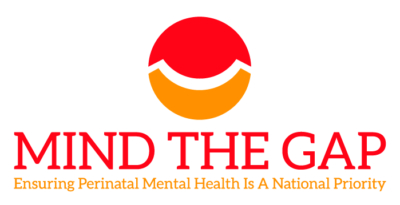The Mind the Gap Initiative released a national Perinatal Mental Health Strategic Action Plan which outlines the growing crisis affecting hundreds of thousands of women and birthing people across the United States who suffer from undiagnosed and untreated perinatal mental health disorders, and outlines policy and program solutions to ensure they get the care they need.
Despite the widespread nature of this health emergency, perinatal mental health receives limited national attention and limited funding.
According to Postpartum Support International’s Executive Director, Wendy N. Davis, PhD, PMH-C, “Perinatal mental health disorders are distinct, serious, and persistent, yet too many policymakers and health care providers do not recognize the severity and frequency of this under-reported public health crisis.” “Mind the Gap presents a strategic, cohesive roadmap for launching a national conversation and spurring specific, targeted actions in the areas of policy, outreach, and health-care delivery in order to turn the tide on this crisis and save lives and ease suffering.”
The Crisis
Of the approximately four million people who give birth each year in the United States, at least one in seven, approximately 600,000 women annually, will experience perinatal depression. And even though there are effective treatments, less than 30 percent of affected women and birthing people seek or receive care.
According to the Centers for Disease Control and Prevention (CDC), mental health conditions are the second leading cause of pregnancy-related death that occurred within 43 days to one year after the end of pregnancy. Meanwhile, children born to mothers with untreated depression experience physical changes in their brain architecture. These changes are linked to negative long-term outcomes for learning and school performance, behavior, the development of future mental health issues, and overall functioning into adulthood.
Mind the Gap Strategic Action Plan
Mind the Gap, a national initiative led by Postpartum Support International and a broad-based coalition of leading experts and stakeholder groups, lays out a coordinated blueprint of priorities and actions urgently needed to save lives and improve the health and wellbeing of America’s mothers, babies, fathers, and other family and community members.
The Strategic Action Plan identifies five national priority areas aimed at increasing treatment for those who suffer from perinatal mental health disorders. Priorities include: raising awareness and helping those who seek support; providing screening and follow-up care; increasing access to and coverage of treatment; providing education and training for health professionals; and increasing clinical and prevention research.
“Mind the Gap is a call to action for policymakers and the entire health care community,” adds Davis. “The only way to close the gap and improve outcomes for mothers, infants, fathers, and communities is to increase research and funding, improve awareness about the problem and access to critical education, prevention, treatment, and other support services for pregnant and postpartum women and their families.”
After decades of discussion, the time has come to close the gap in the undertreatment of Perinatal Mental Health disorders. Join the movement now.

